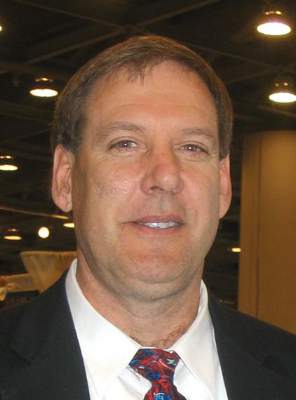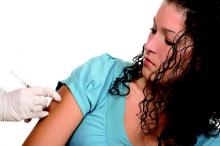A targeted MenB vaccination campaign during a university outbreak of serogroup B meningococcal disease effectively prevented additional cases in those who received the vaccine, according to a recent study.
“The outbreak investigation and highly successful vaccination campaign described here can serve as a model for how to approach similar outbreaks in the future,” reported Lucy A. McNamara, Ph.D., of the Centers for Disease Control and Prevention, and her associates (Pediatrics 2015 April 27 [doi: 10.1542/peds.2014-4015]). Dr. McNamara’s team used a compilation of data sources for their report: case and population data, laboratory typing of meningococcal isolates, university staff interviews, and vaccination coverage data from the Investigational New Drug protocol.
Seven cases of the same strain of serogroup B meningococcal disease occurred among undergraduate students at Princeton (N.J.) University, between March and November 2013, plus an eighth case during that time in a high school student who stayed in the Princeton dorms. The subsequent vaccination campaign with a two-dose series of the 4CMenB vaccine Bexsero targeted the 5,241 undergraduates and 541 graduate students living in the dorms, plus 6 caregivers or spouses of these students living in the dorms and 11 other individuals at the university with a medical condition putting them at high risk.
The first vaccine dose was administered between Dec. 9 and 12, 2013, followed by the second between Feb. 17 and 20, 2014. By May 14, 94.9% of the target population had received at least one dose of the vaccine, and 89.1% had received both doses. Among undergraduates, 96.6% received the first dose and 91.4% received both. The only serious adverse event considered a possible effect of the vaccine was a single case of rhabdomyolysis occurring a day after the second dose. Since Feb. 1, 2015, no vaccinated individuals developed serogroup B meningococcal disease, but a ninth ultimately fatal case occurred in March 2014 in a student from a different university who had close contact with several mostly vaccinated Princeton undergraduates, indicating that carriage of serogroup B Neisseria meningitidis among vaccinated persons was not eliminated, the authors wrote.
The research was funded by the Centers for Disease Control and Prevention and the Council of State and Territorial Epidemiologists. Dr. Johnsen spoke at Pfizer conferences and at a National Meningitis Association conference; travel expenses were covered, but he received no honorarium or other reimbursement. No other authors reported any relevant financial disclosures.



